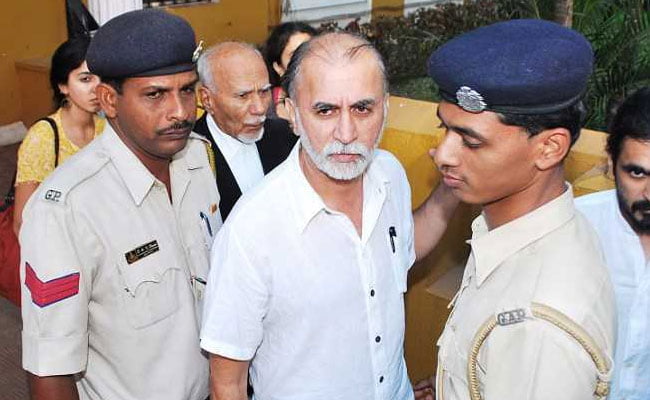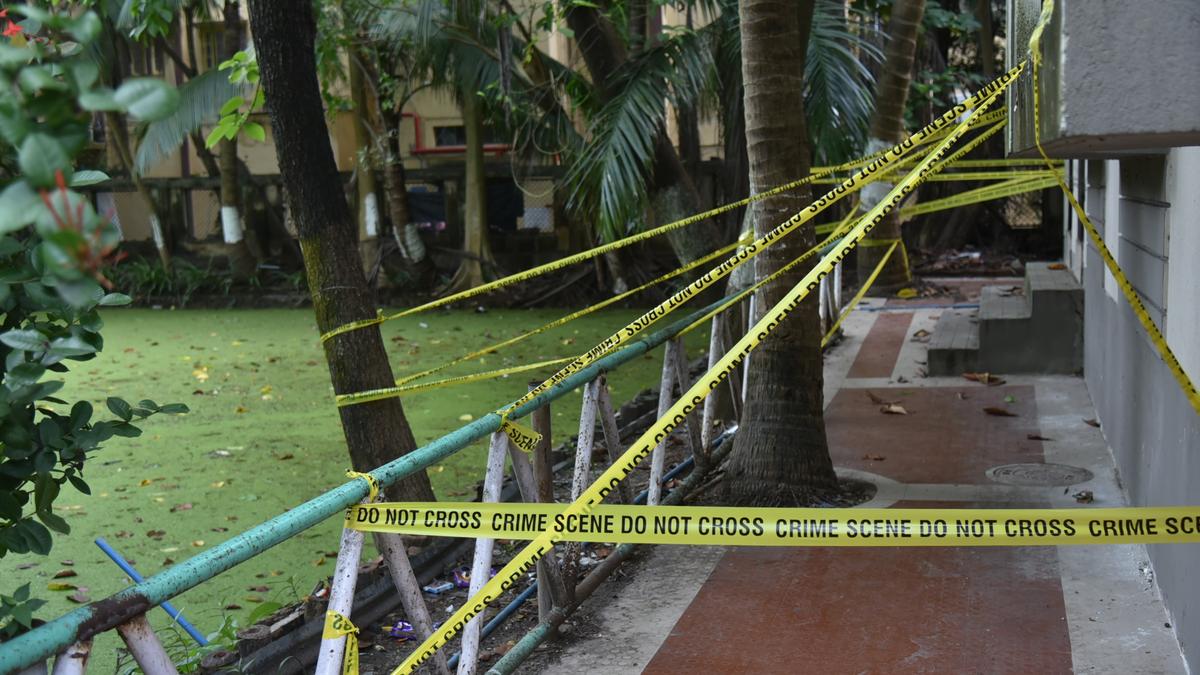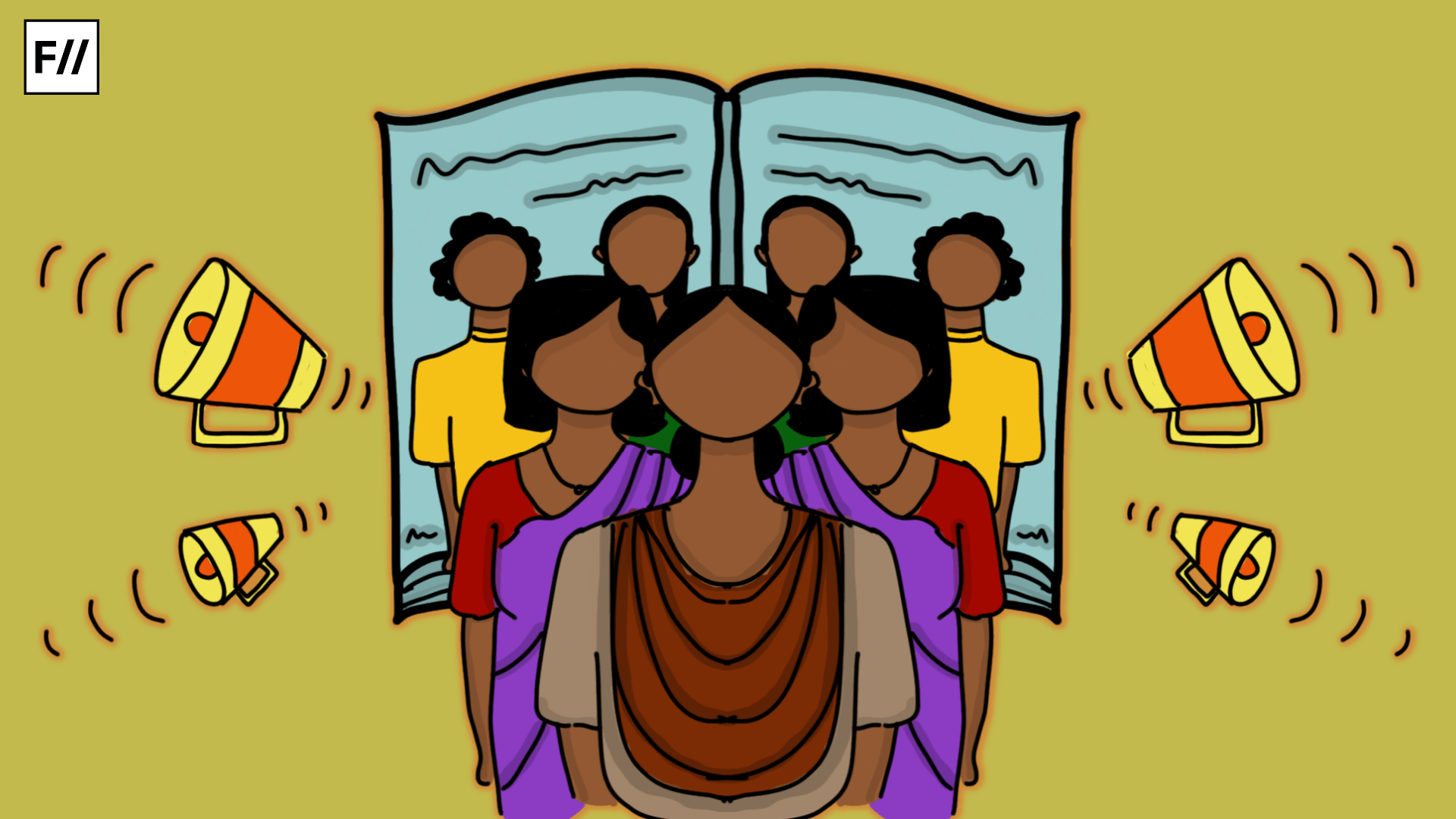Trigger warning: references to sexual assault.
In their quest to keep up with the sensationalism trend that media houses worldwide are following, Times Now, on May 28th, played CCTV tapes that are crucial evidence in an ongoing trial in a case of sexual assault. In 2013, Tarun Tejpal, editor of Tehelka, was accused of sexually assaulting a woman in an elevator in a hotel in Goa, where the magazine was hosting an event.
The trial is ongoing and the matter is sub-judice. A crucial piece of evidence in this matter exists in the form of CCTV tapes acquired from the hotel. These tapes were used by Times Now to gain TRPs, even though their actions were not only in complete violation of the law but also overstepped the ethical boundaries of the profession of journalism.
Before we delve into what laws and ethics were flouted by Times Now, let’s look at the exact actions that have caused such an uproar against the media house. Times Now played the CCTV camera footage and very cursorily blurred the victim/survivor’s face on the screen. What they did next, however, was worse than revealing the victim/survivor’s identity.
What on earth is @TimesNow up to? What you’re doing is ILLEGAL. Pretending you are for the survivor, you are making her relive the horror. I know that you’re not in the business of journalism but this has touched a new low. STOP if you have any decency @NWM_India
— Kalpana Sharma (@kalpana1947) May 28, 2018
They analyzed this piece of evidence and pointed out facts such as “Now, we see Mr Tejpal wiping his mouth” and “Now, we see the victim adjusting her dress”. The different guests called on the show to comment on the footage batted among themselves the credibility of the survivor’s account and Tejpal’s defence, a job which essentially belongs to the court of law. The Network of Women in Media, India also wrote a letter to the channel highlighting the gross injustice meted out by them to the entire legal set-up as well as to their ethics.
Illegal coverage
First and foremost, it is important to point out that the case is being tried “in camera”. In other words, it is being tried in complete confidentiality with no public or media presence. The rationale behind in-camera proceedings as also laid in the case of Ujjam Bhai vs. State of UP is to ensure proper administration of justice, devoid of unnecessary opinions and comments by the public.
The aim is to avoid any possibility of the judge’s opinion being coloured. This is particularly important in a rape trial such as this wherein power hierarchies are at play and the subject- matter is rape – one that comes with a number of pre-conceived notions and prejudices. Hence, every attempt to ensure impartiality should be welcome.
.@TimesNow claims of supporting the survivor fall short as broadcasting evidence in an ongoing case and building a skewed narrative is nothing but a #mediatrail #TejpalTapes 2/5
— NWMIndia (@NWM_India) May 29, 2018
To help achieve the above objective, our penal law contains Section 228A. This provision of the IPC lays down that nothing with respect to a rape trial can be published or printed without the court’s permission. Such a requirement is also present under the Press Council of India’s Journalistic Conduct Norms. The objective is to secure the privacy of the victim/survivor as well as of the perpetrator.
Also Read: How Has The Media Reported The Rohtak Gang Rape Case?
Here, the victim/survivor of rape is treated as more a criminal than the perpetrator. Not only is every attempt made to identify the victim/survivor’s contribution to the violence and injustice inflicted on her but there is the systemic isolation of the victim/survivor. Most rape victim/survivors in India being women, especially women from particular sections of society, are subject to greater injustice from the societal prejudices around them than the perpetrator usually is.
The scales are so tilted that even courts in landmark cases such as Phool Singh vs State of Haryana or even the Mohd. Farooqui case have been excessively critical of the victim/survivor, but have passed off the rapists’ actions as acts of “uncontrolled lust” common to the youth. It is in such a backdrop that privacy becomes integral to rape trials, a right that is also constitutionally protected under Article 21 and a right that Times Now mercilessly trampled upon.
Surprise, surprise. @TimesNow is not only showing tapes that are literally evidence in an ongoing trial, but that are sensitive and traumatic for the survivor.
Have some shame at least.#TejpalTapes
— Andre Borges (@borges) May 28, 2018
Further, Times Now’s actions are in contempt of court because there exists a trial court order prohibiting the publication of any evidence concerning the Tejpal case to the public. This order has not been paid heed to by the news channel. This was pointed out to them on air, in their show, by the investigating officer in the case – a warning that went unheeded by the news channel.
They continued to not only display the evidence but also conducted a continued analysis of the same. Given that this is in complete contravention of explicit orders by the court, it could amount to contempt.
Ethical concerns
The media is known as the fourth pillar of democracy, it is supposed to be the watchdog of the other pillars in a democratic set-up. So it is essential that the media functions according to certain norms and a code of ethics. Times Now’s actions are unethical in the way in which they treat the survivor.
SHES NOT A GIRL YOU PERVERTS.
SHES A GROWN WOMAN WHO KNOWS HER “YES” FROM HER “NO.” TEJPAL ABUSED A GROWN WOMAN. #TejpalTapes #TimesNow https://t.co/I10a6K9ZUG— Anoo Bhuyan (@AnooBhu) May 28, 2018
Anyone who watched the show would have witnessed the attempts by lawyers on the show to discredit the victim/survivor’s account by pointing to irrelevant ideas such as the “victim’s behaviour” or the fact that she isn’t behaving in a hysterical and distressed manner. Such mudslinging not only causes grave injustice to the victim/survivor whose testimony is supposed to be the primary piece of evidence in a case of sexual assault. Times Now created a platform for the public to be openly hostile against the victim/survivor and demand “victim-like” behaviour from her.
In the past, when a woman has not conformed to the societal demands from her with regard to the kind of emotion she is supposed to exhibit in certain situations, the media has declared her guilty. I am talking about the Nupur Talvar incident whereby close to the murder of her daughter, Nupur Talvar was declared guilty simply because she did not cry in the interview that she gave to a leading news channel.
Who lays down that the woman needs to cry in a situation of distress to be devoid of any guilt? We do not know. However, we do wish that media houses would stop creating opportunities for the public to pronounce judgments of the nature of King Solomon and begin to cater to some ethical standards in their reportage of sexual assault cases.
Also Read: Sixteen Ways To Implement Gender Ethical Journalism
Featured Image Source: NDTV
About the author(s)
Yashvi is a corporate lawyer based out of Delhi.





This is just a front times now is adopting.
The man acused of rape is the founder of Tehelka and CobraPost, these two are India’s leading publishers of Investigative Journalism.
Recently they released a sting operation ” Operation 136″ which exposed all major news channels and publishers as well like times now, tv18, aaj tak and times of India etc. The heads of these media houses agreed to take money to push and promote Hindutva and BJP for upcoming elections.
So the mainstream media is trying to remove them from existence by doing these activities. It is a desperate act of self preservation.